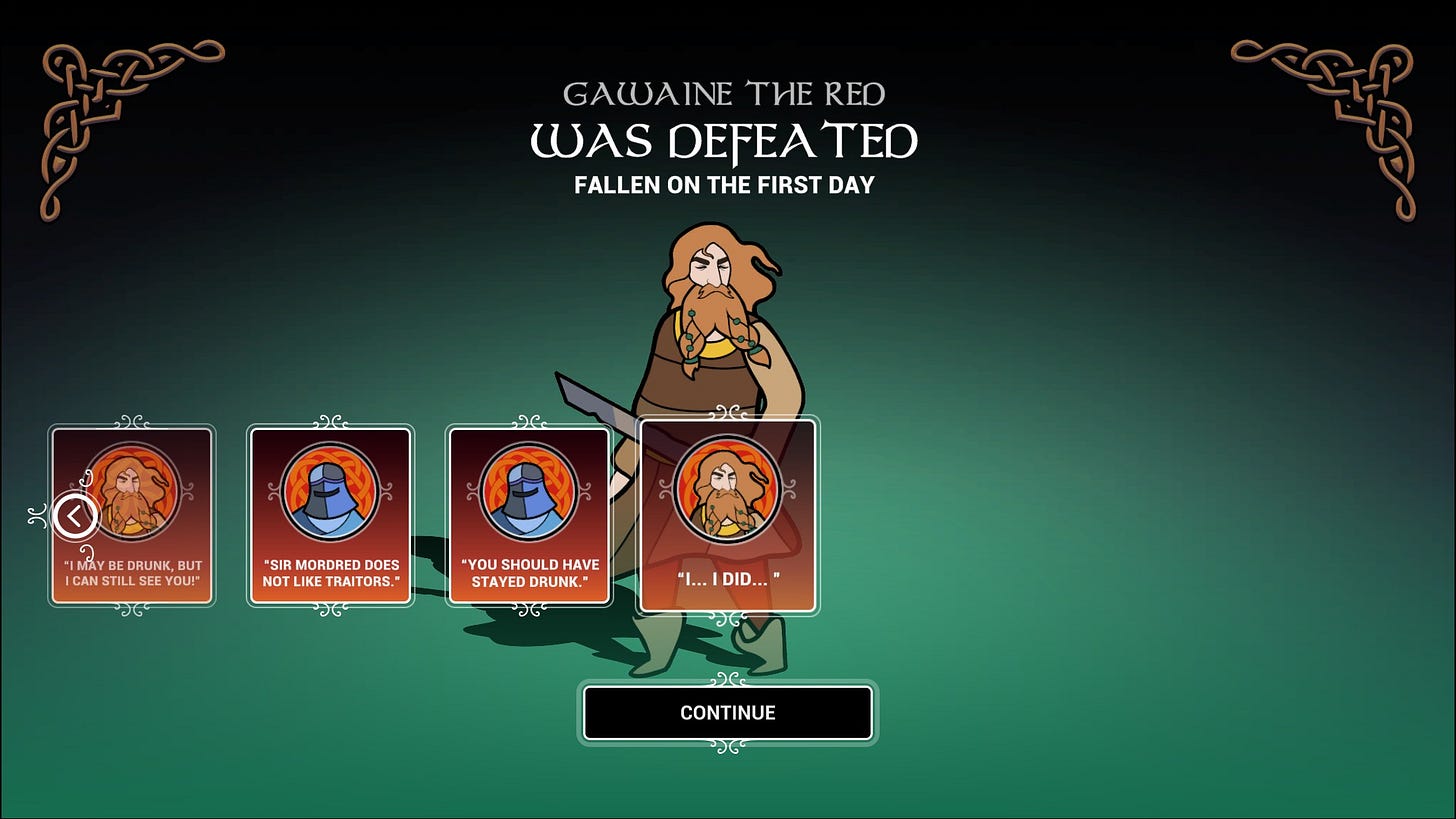How Pendragon Procedurally Generates Tragedies
Also, I want your input on the future of this newsletter
Procedurally generated stories don't usually feel “authored”. They don't need to - in the same way that improvisational theatre is a different type of performance to a scripted one. Participating in an emergent narrative that comes from an interaction between variables is simply another type of game - but it's interesting when that does still feel like the traditional stories we're used to.
In Pendragon, everyone wants something. In a big way, your player characters share your overarching goal to defeat Mordred. In the smaller ways though, from our known characters of Arthurian legends, to the knights and villagers you can recruit on your journey, each are driven by more personal desires. Some characters openly express their desires, and others quietly press on with their motivations most important to them alone, but not everyone gets what they want, or deserve.
While it isn’t always seamless, the motivation-driven nature of each character in play means the stories that unfold are… stories, as we know them. Across the boards we see tragedies, love stories, and untimely ends.
At the end of each run, the game summarises your attempt by pulling representative dialogue from each battle, illustrating the ups and downs of your journey. Pendragon’s character-driven approach is neatly encapsulated in the above run where Gawaine fell at the first hurdle, dying on the first map before recruiting any others, or even making it out of his own home. What he wants is, if not to overcome his drinking problem, than to be useful besides it. When he falls at the hands of Mordred’s opposition, it isn't framed as a defeat from the big bad, but his own personal defeat.
Oh Also
Officially, this newsletter is for small bits of games analysis that I find interesting. Unofficially, I set the bar for “interesting” as things I liked - I didn’t want to directly email people negative criticism, particularly when I’m not giving myself a lot of room to explore, wordcount-wise.
It does mean, though, that I’ve been passing on ideas that do interest me because they ultimately took a negative slant. Like, say, how Dead Rising ties in its overtly offensive sense of humour with its camp, over-the-top styling as if they’re one and the same (they are not!).
So before we get to the Cat Tweet portion of events: Please let me know (comment! twitter!) if you would prefer things to stay as they are, or if you would be interested in more little-c critical criticism?
Ruth Cassidy is a writer and self-described velcro cyborg who, when not writing about video games, is probably being emotional about musicals, mountains, or cats. Has had some bylines, in some places.
Reading this online? You can subscribe to Saturshot for bitesize games criticism in your inbox every Saturday!





I have no problem receiving negativity in my inbox.
I would definitely be happy for more negative critical writing from you, if that's what inspires you. The more positive critiques are nice as they are a nudge to try out or re-explore the games you discuss, but the Dead Rising idea you mentioned sounds fascinating!
I also feel that the short and focused nature of your newsletter will make any negative criticism feel more like a curiosity-driven "here's where this game stumbles", but that might just be me. :)